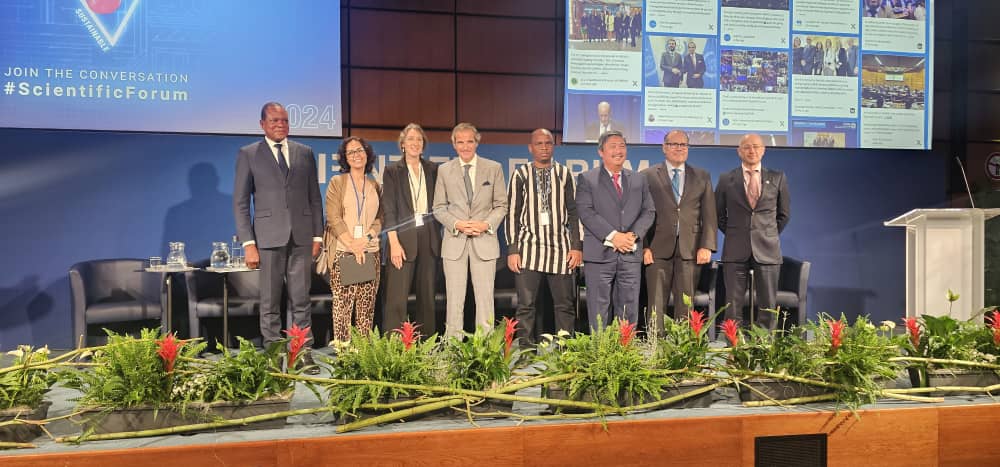|
Getting your Trinity Audio player ready...
|
Dr Anxious Jongwe Masuka, Zimbabwe’s Minister of Lands, Agriculture, Fisheries, Water and Rural Development, shared opportunities and insights that stakeholders could utilize to improve food security.
He was speaking during the 68th International Atomic Energy Agency (IAEA) Scientific Forum being held under the theme “Atoms4Food: Better Agriculture for a Better Life”, running from 17 to 18 September 2024 in Vienna, Austria in a panel discussion of a session titled “Fostering partnership building and mobilizing resources for increased and more sustainable impact.”
In the face of climate change, Dr Masuka urged farmers, and scientists to use some of the nutrition breeding to be able to develop varieties that are suited to the drier environments experienced in Sub-Saharan Africa.
He also urged increased water use efficiency, as well as tracking for fertilizers and their more efficient utilization. In the area of animal livestock, he said rinderpest has been eliminated, but there’s also an opportunity for the sterile insect technique for tsetse fly elimination.
“Tsetsefly is in many parts of Africa, including Zimbabwe. So I look forward to research continuing on this line so that the communities that are impacted can produce livestock in these infested areas,” Dr. Masuka said.
To address food waste and loss, he emphasised the need to ensure longevity and better shelf life for bread and other things. The Minister also called for improved trade.
“So I’m looking at these multifarious opportunities that have been presented here yesterday and today in terms of the insights that we could utilize to improve food security, that increase production and productivity, but concomitantly, reduce waste. There are massive opportunities that I’ve seen today.
“As a way forward, I think these aspects are related to the leadership that is required to drive the change that we need to do – the political way to do so, and the partnerships that start with the IAEA and FAO and all of us. We need collaboration, and cooperation to ensure that within the same region, perhaps we can look at the regional projects that are aligned to eliminate some of the most important challenges that we face and that we have in mind,” Dr. Masuka added.
He said capacity building is an important aspect, especially for small countries such as Zimbabwe.
“But I think it starts with also the STEM and education that we need more and more of our children trained in these areas. And so we need capacity building, not just at the tertiary institutions, but those that are already in force. I also look at the resources, the resources to be able to do this, the financial resources, and the infrastructure that is required to build the sustained momentum that we require to feed an increasing population.
“So we need to increase productivity, we need to reduce loss but also maybe at some stage, we need to look at how we can slant our diet so that we can live within the means of the planet.”






